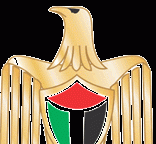"In sum, there are great dangers ahead for the Palestinians, who will continue to suffer terribly at the hands of the Israelis for some years to come. But it does look like the Palestinians will eventually get their own state, mainly because Israel seems bent on self-destruction."
What is the take away from that indefensible assertion? Of course it's that Palestinians don't really have to do anything, except avoid the kind of violence that might justify massive ethnic cleansing by Israel, and simply wait for the Israeli project to collapse under the weight of its own contradictions. This is the key refrain of the siren song of the one-state agenda, the chorus of certainty between each and every verse. It takes a perfectly reasonable observation -- that because of the occupation Israel is charging headlong down the path towards self-destruction -- which is undoubtedly true, but attaches to that accurate assessment the weird corollary that this somehow means Palestinian victory. As I keep saying, again and again, it is entirely possible for either or, quite possibly, both sides to lose everything in this conflict. Nothing about it is a zero sum. Just as both Israelis and Palestinians require a peace agreement to secure a reasonable future, both of them are likely to face wretched futures as far as the imagination can justifiably be stretched in almost any scenario likely to be produced by a lack of peace (leaving aside, of course, science fiction-like fantasies that have no relation to the political and other forces that actually produce outcomes).
What Mearsheimer fails to see is that while it's true that extremists in the pro-Israel lobby are assisting Israel in its journey towards oblivion by counseling or enabling permanent occupation, he is performing the same Kevorkian-style tender mercy for the Palestinians by counseling and enabling the abandonment of efforts to end the occupation. Telling the Palestinians that they are doomed for a certain, probably long, term to endure formalized apartheid and there isn't really anything they can do to avoid that, but that in the long run they basically don't have to do much of anything for their national project to triumph since Israel will inevitably self-destruct is about as unhelpful, unrealistic and disempowering as anything I can imagine. It's been my long-standing suspicion that while Mearsheimer clearly doesn't like the pro-Israel lobby, he doesn't seem to really understand, or even care that much about the well-being of, the Palestinian people. That Mearsheimer is using them and their cause as a foil in his ongoing feud with the pro-Israel lobby, which he has been at odds with for so long he is starting to resemble, all but confirms this." Hussein Ibish











 Tomorrow, on the sixtieth anniversary of the start of UNRWA's field operations in 1950, Nadya will join 13,000 other runners in the marathon.
Tomorrow, on the sixtieth anniversary of the start of UNRWA's field operations in 1950, Nadya will join 13,000 other runners in the marathon.






